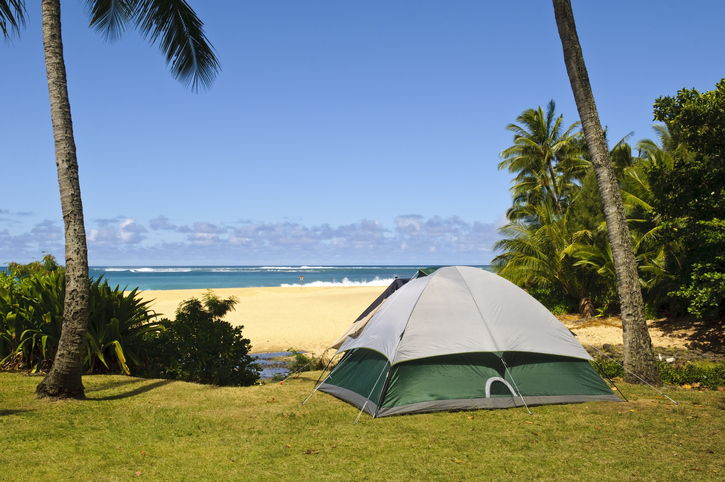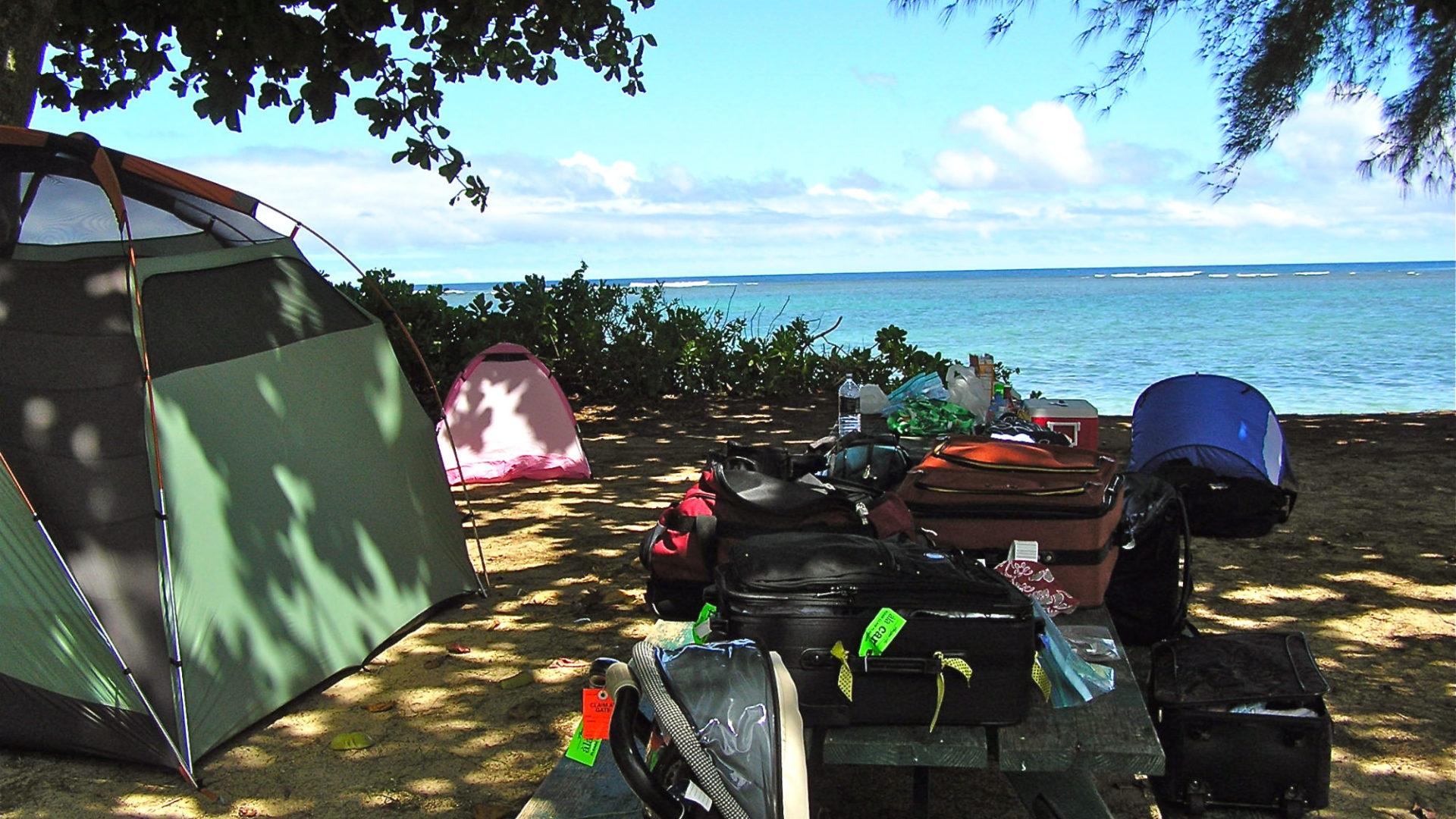Imagine waking up to the sound of crashing waves, the warmth of the sun on your face, and the exhilarating feeling of being surrounded by nature’s beauty. A camping adventure in Hawaii offers all of this and more. From lush rainforests to stunning beaches, Hawaii’s diverse landscapes provide the perfect backdrop for an unforgettable camping experience. In this article, we will share valuable tips and advice to ensure that your camping trip to Hawaii is nothing short of amazing. Whether you are a seasoned camper or a first-timer, these tips will help you make the most of your time in paradise. So, grab your tent and get ready for an adventure like no other!
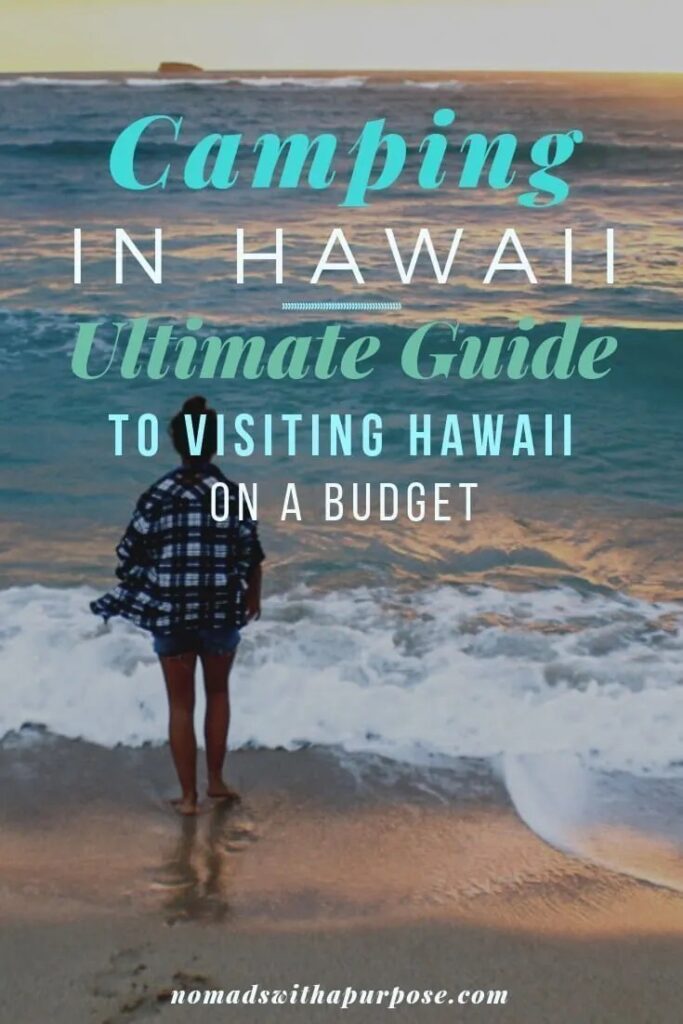
Choosing a Campsite
Research on Different Campgrounds
When choosing a campsite in Hawaii, it’s important to do your research on different campgrounds available. There are numerous options throughout the islands, each offering unique experiences. Look for campgrounds that suit your preferences, whether you want to be close to the beach, surrounded by lush forests, or near popular hiking trails. Read reviews from previous campers to get an understanding of the facilities, cleanliness, and overall atmosphere of each campground.
Consider the Location
The location of your campsite is crucial to the enjoyment of your camping trip in Hawaii. Take into account the proximity to attractions and activities you’re interested in. If you’re a beach lover, consider a campsite near the coast. If you’re more into hiking or exploring nature, look for campgrounds near national parks or hiking trails. Additionally, consider the accessibility of the site, especially if you’re traveling with children or have mobility restrictions.
Check for Amenities and Facilities
Before making a final decision on a campsite, be sure to check what amenities and facilities are available. Some campgrounds offer basic facilities like restrooms and picnic tables, while others may have more luxurious amenities such as hot showers, laundry services, and even electrical hook-ups. Determine what level of comfort you require and choose a campground that meets your needs.
Look for Safety Measures
Safety should always be a top priority when choosing a campsite. Look for campgrounds that have adequate safety measures in place, such as fire extinguishers, well-marked emergency exits, and well-maintained paths and roads. Additionally, consider the reputation of the campground in terms of wildlife encounters. Some areas may have a higher risk of encounters with bears or other wildlife, so be prepared and choose a campground with a good track record for safety.
Planning and Preparation
Check the Weather
One of the first things to do when planning a camping trip in Hawaii is to check the weather. Hawaii has a tropical climate, which means it can experience sudden rain showers and temperature changes. Knowing the weather forecast will help you prepare for any weather conditions, ensuring you bring the appropriate clothing, gear, and supplies.
Make Reservations
To secure your spot at a desired campground, it’s important to make reservations in advance. Many campgrounds in Hawaii can be popular and fill up quickly, especially during peak travel seasons. Check with the campground directly or use online booking platforms to make your reservations early.
Pack the Right Gear
Packing the right gear is essential for a successful camping trip in Hawaii. Consider the type of camping you’ll be doing – whether it’s car camping, tent camping, or backpacking – and pack accordingly. Essentials include a tent, sleeping bags, sleeping pads, camping stove, cooking utensils, and a cooler. Don’t forget to bring insect repellent, sunscreen, and a first aid kit.
Prepare a Camping Checklist
A camping checklist is a valuable tool for ensuring you don’t forget any important items. Create a list of camping essentials specific to your trip, including camping gear, clothing, food, and any other personal items. Having a checklist will help you stay organized and ensure you have everything you need for a comfortable and enjoyable camping experience.
What to Pack
Tents and Sleeping Gear
When camping in Hawaii, it’s crucial to have a reliable tent that can withstand the elements. Look for a tent that is waterproof, easy to set up, and provides sufficient ventilation. Along with the tent, make sure you have comfortable sleeping gear, such as sleeping bags and sleeping pads, to ensure a good night’s sleep.
Cooking Equipment and Utensils
Pack cooking equipment and utensils that are lightweight and easy to transport. A camping stove, pots, pans, and utensils will allow you to prepare delicious meals while camping. Don’t forget to bring a cooler for storing perishable food items and plenty of ice.
Food and Water Supplies
Stock up on non-perishable food items that are easy to prepare and require minimal cooking. Granola bars, canned goods, dehydrated meals, and snacks are all excellent options. It’s also important to bring an ample supply of drinking water, as not all campgrounds may have potable water available.
Clothing and Personal Items
Pack clothing suitable for the weather conditions in Hawaii. This includes lightweight and breathable clothes for the daytime, as well as warmer layers for cooler evenings. Don’t forget to pack essentials like sunscreen, insect repellent, toiletries, and any necessary medications. It’s also a good idea to bring a portable phone charger and a lantern or flashlight.
Essential Camping Skills
Setting up and Taking Down a Campsite
Knowing how to set up and take down a campsite efficiently is an essential skill for any camper. Practice setting up your tent before your camping trip to ensure you can easily assemble it upon arrival. Familiarize yourself with the process of staking out the tent, attaching the rainfly, and properly securing it to withstand any weather conditions.
Campfire Safety and Cooking
Campfires are a quintessential part of the camping experience, but it’s important to practice campfire safety. Follow the campground’s rules and regulations regarding fires, and always keep a safe distance from flammable materials. When cooking over a campfire, use designated fire rings or grills and never leave a fire unattended.
Navigation and Trail Skills
If you plan on hiking or exploring trails during your camping trip, it’s essential to have basic navigation and trail skills. Learn how to read a map and use a compass before heading out on your adventure. Familiarize yourself with trail markers and signs to ensure you stay on the correct path.
Basic First Aid
Having basic first aid knowledge and a well-stocked first aid kit is vital for any camping trip. Be prepared to handle common injuries such as cuts, scrapes, burns, insect bites, and sprains. Brush up on first aid techniques, and make sure your first aid kit includes items such as bandages, antiseptic ointment, pain relievers, and tweezers.
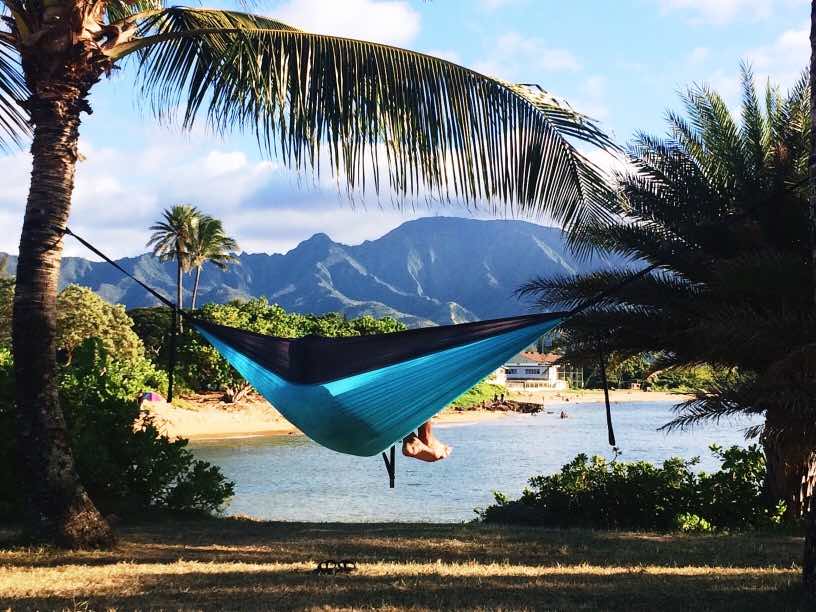
Outdoor Activities
Hiking and Trail Exploration
Hawaii is renowned for its breathtaking hiking trails, offering stunning views of mountains, lush landscapes, and breathtaking waterfalls. Research the various hiking trails available and choose ones that suit your skill level and interests. Remember to bring proper hiking shoes, sunscreen, a hat, and plenty of water.
Snorkeling and Scuba Diving
If you’re visiting Hawaii, exploring the underwater world through snorkeling or scuba diving is a must. The islands are home to vibrant coral reefs, tropical fish, and even sea turtles. Rent or bring snorkeling or diving gear and immerse yourself in the crystal-clear waters to discover the beauty of Hawaii’s marine life.
Beach Activities and Water Sports
With its pristine beaches, Hawaii offers endless opportunities for beach activities and water sports. Whether you want to try your hand at surfing, paddleboarding, kayaking, or simply relax on the sandy shores, there’s something for everyone. Pack appropriate gear and enjoy the sun, sand, and surf.
Wildlife Watching
Hawaii is teeming with unique wildlife, including colorful birds, endemic species, and marine life. Take the time to observe and appreciate the diverse wildlife found in the islands. Remember to maintain a respectful distance and never feed or approach wild animals.
Respecting Nature and Local Traditions
Leave No Trace Principles
When camping in Hawaii, it’s important to follow the Leave No Trace principles. These principles emphasize minimizing your impact on the environment and leaving your campsite and surrounding area as you found it. Pack out all trash, avoid damaging vegetation, and respect wildlife habitats.
Protecting Natural Resources
Hawaii is home to delicate natural resources, including coral reefs, native plants, and endangered species. Take care not to disturb or damage these resources. Avoid walking on coral reefs, refrain from picking or damaging plants, and keep a safe distance from protected areas.
Respecting Cultural Sites
Hawaii has a rich cultural heritage, and it’s essential to respect and preserve the cultural sites found throughout the islands. Avoid trespassing on sacred grounds, follow any posted guidelines or restrictions, and learn about the local customs and traditions to ensure you’re being respectful.
Interacting with Wildlife
While wildlife encounters can be an incredible experience, it’s important to remember that wild animals are just that – wild. Do not approach or attempt to touch or feed wildlife, as this can disrupt their natural behaviors and be dangerous for both you and the animals. Observe wildlife from a safe distance to minimize your impact and ensure their wellbeing.
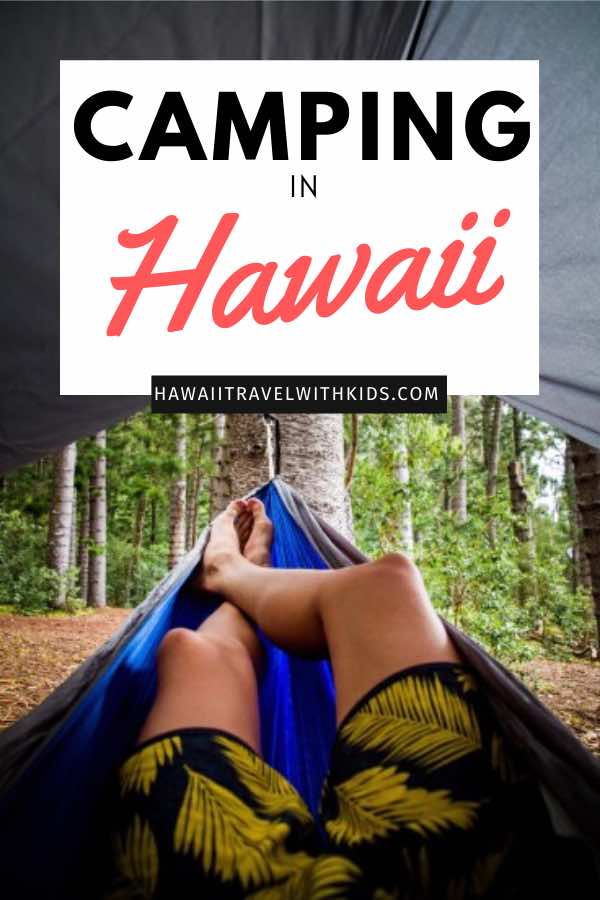
Safety Considerations
Understanding Ocean and Weather Conditions
Hawaii’s ocean and weather conditions can change rapidly, and it’s vital to stay informed and prepared. Be aware of any advisories or warnings regarding water activities, such as high surf or strong currents. Pay attention to weather forecasts and prepare accordingly, taking necessary precautions for rain or extreme heat.
Awareness of Potential Hazards
While Hawaii is a paradise, it’s essential to be aware of potential hazards. This includes understanding the risks associated with certain activities, such as hiking on rugged terrain or swimming in areas with strong currents. Be cautious of slippery rocks, uneven trails, and steep inclines. Stay informed and take appropriate precautions to ensure your safety.
Basic Wilderness Survival Skills
Having basic wilderness survival skills can be life-saving in case of an emergency. Learn how to build a shelter, start a fire, find potable water, and signal for help. Familiarize yourself with local flora and fauna to avoid any potential dangers or risks.
Emergency Communication
Before embarking on your camping trip, ensure you have a reliable means of communication in case of an emergency. This may include a fully charged cell phone, a portable charger, or a two-way radio. Familiarize yourself with emergency contact numbers and the nearest medical facilities.
Rules and Regulations
Observe Campground Regulations
Each campground in Hawaii may have its own set of rules and regulations in place. It is important to familiarize yourself with them and adhere to them during your stay. These regulations may include restrictions on noise, campfire usage, and waste disposal. Respecting these rules will help maintain a positive camping experience for all.
Permits and Fees
Some campgrounds in Hawaii may require permits or fees for overnight stays. It’s essential to check with the campground or the relevant park authority to understand the requirements. Research and understand the reservation process, including any reservation fees, cancellation policies, and how far in advance you can book your stay.
Hunting and Fishing Restrictions
Hunting and fishing are popular activities in Hawaii, but it’s important to be aware of any restrictions or regulations in place. Familiarize yourself with the hunting seasons, bag limits, and licensing requirements if you plan on participating in these activities. Respect any protected areas where hunting or fishing is prohibited.
Protecting Endangered Species
Hawaii is home to many endangered species that require protection. Avoid disturbing or harming these species, and remain mindful of their habitats. Keep a safe distance from nesting sites and avoid approaching or touching any wildlife, especially endangered species.
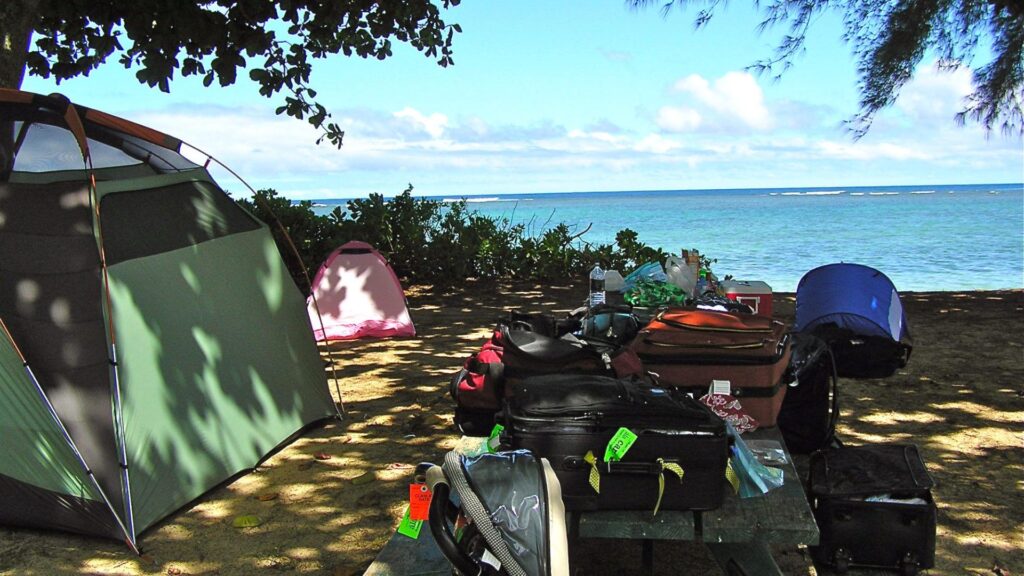
Budgeting and Saving Money
Choosing Affordable Campgrounds
Camping is often a cost-effective alternative to other forms of accommodation, but it’s still important to consider your budget. Look for affordable campgrounds that offer reasonable rates for overnight stays. Some campgrounds may also offer discounts for longer stays or for certain groups, such as seniors or military personnel.
Cooking Your Own Meals
Eating out every meal can quickly add up, especially in an expensive destination like Hawaii. Save money by cooking your own meals at the campground. Bring a camping stove, pots, and pans, and shop for groceries ahead of time. This will not only help you stick to your budget but also allow you to enjoy delicious meals in the great outdoors.
Renting Gear Instead of Buying
If you don’t have all the necessary camping gear, consider renting instead of buying. Renting camping equipment can be a cost-effective option, especially if you’re planning a one-time camping trip or if you’re traveling from afar and don’t want to transport bulky gear. Look for gear rental shops or check with the campground if they offer rental services.
Finding Free or Low-Cost Activities
Hawaii offers a plethora of free or low-cost activities that allow you to experience the islands without breaking the bank. Take advantage of free hiking trails, public beaches, and cultural events. Research local festivals, farmers markets, and community events that offer affordable entertainment options.
Etiquette and Campground Etiquette
Respect Quiet Hours and Privacy
Respecting quiet hours is essential for creating a peaceful and enjoyable camping experience for everyone. Many campgrounds have designated quiet hours during which noise should be kept to a minimum. Be mindful of your fellow campers and avoid loud conversations, excessive noise, or playing music at high volumes during these hours. Respect others’ privacy and avoid entering occupied campsites without permission.
Keeping Campsites Clean and Tidy
Maintaining cleanliness and tidiness not only promotes a pleasant camping experience but also helps protect the environment. Dispose of trash properly in designated trash bins and never leave garbage or food scraps lying around. Keep your campsite organized and clean up thoroughly before leaving.
Being Considerate of Other Campers
Being considerate of other campers goes a long way in creating a positive camping atmosphere. Be mindful of noise levels, especially in the early morning and late at night. Avoid shining bright lights or using flashlights that may disturb others. Respect others’ personal space and be courteous in shared facilities like restrooms and showers.
Minimizing Noise Pollution
Noise pollution can quickly disrupt the tranquility of a camping trip. Minimize noise pollution by avoiding loud conversations, refraining from playing loud music, and keeping electronic devices on silent mode. This allows everyone to immerse themselves in the peaceful sounds of nature and enjoy a relaxing camping experience.
Camping in Hawaii offers a unique opportunity to connect with nature, explore magnificent landscapes, and experience the Aloha spirit firsthand. By choosing the right campsite, planning and preparing diligently, respecting nature and local traditions, and considering safety considerations, you can ensure a memorable and enjoyable camping adventure in the beautiful islands of Hawaii. Happy camping!
